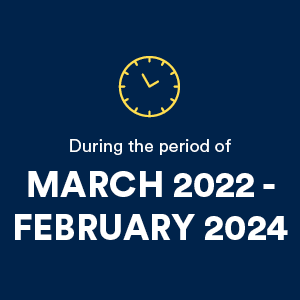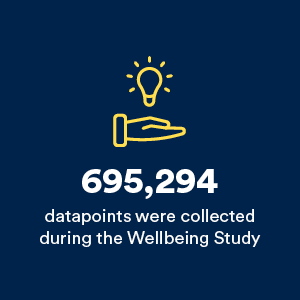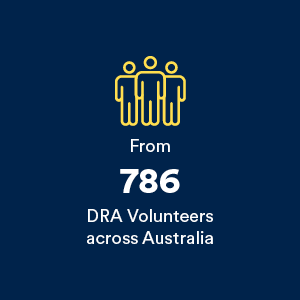This website uses cookies so that we can provide you with the best user experience possible. Cookie information is stored in your browser and performs functions such as recognising you when you return to our website and helping our team to understand which sections of the website you find most interesting and useful.
Wellbeing study objective
The Wellbeing Study was commissioned by Disaster Relief Australia (DRA) to investigate whether service in DRA can lead to improved mental health and wellbeing.
The Study was funded by a Movember Foundation research grant and led by the South Australian Health and Medical Research Institute (SAHMRI).



Key Highlights
DRA has witnessed the power that helping others in their time of need has on volunteer wellbeing. Although DRA was aware of this, before the Wellbeing Study, there was no evidence to fully explain how service in DRA makes sick people better. The Wellbeing Study provides scientific proof that: The Wellbeing Study Interim Report provides scientific proof that:
The data illustrates that:
- DRA volunteers, on average, show significant improvements in most mental health outcomes. These effects are sustained over the longer-term.
- Volunteering with DRA had the greatest impact on vulnerable veterans. It made them feel useful and regain a sense of purpose, often when they felt they had few options left.
- Active volunteering – being physically active and helping others in times of need
- Connection – socialising with like-minded people and connecting to positive role models.
- Development – formal and informal upskilling leading to improved self-worth.
- Recognition – experiences that facilitate reinforcement or positive reframing of self-regard.
- Supportive conversations – detecting early warning signs by wellbeing officers and volunteers with high wellbeing literacy.
- The way in which service in DRA leads to improved mental health outcomes and a lower risk of suicide is distinct from mainstay interventions such as psychological therapy.
- DRA activities map primarily onto drivers of wellbeing that serve to protect people from developing serious illness and behaviours (such as suicide), as well as aiding in recovery.
- By focusing on disaster relief, veterans were able to find a sense of pride in their military service (often over-coming feelings of guilt and shame). This allowed them to reframe military service in a positive light while performing a national good.
Final Report Highlights
Read the Wellbeing Study Final Report Highlights
Click to read the HighlightsWellbeing Study Final Report
Read the final report released in February 2024, prepared by independent research partner by SAMRHI.
Read the Full Report